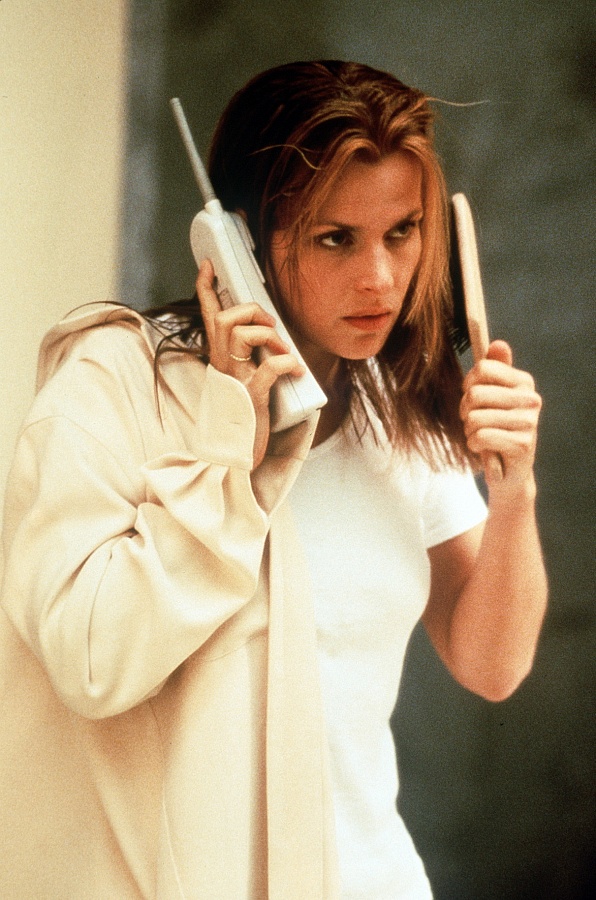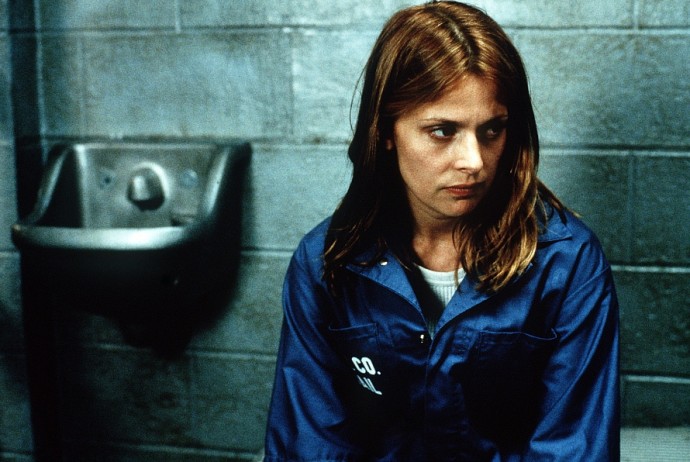Dir: John Landis
Star: Nastassja Kinski, Billy Zane, Lara Flynn Boyle, Rob Schneider
a.k.a. Dying to Get Rich… Susan’s Plan
If you can imagine a comedic version of Your Friends and Neighbors, you will be somewhere in the ballpark as to how much of an abject failure this is. You have virtually the same level of repellent characters, only instead of offering an unpleasant and acerbic commentary on the shallow and banal nature of modern life, they are mugging it up and playing the situation in increasingly desperate attempts for laughs. The aim appears to be “black comedy,” with Susan (Kinski) and her pals plotting the murder of her ex-husband, Paul (Adrian Paul), in order to profit from the insurance. However, the incompetence of the two hit-men (Schneider and Michael Biehn) leave their target only wounded, and potentially able to identify his attackers to the cops who are investigating the shooting. To avoid this, they engage the services of biker Bob (Dan Aykroyd), only for him to demand an increase in his fee when he discovers the incompetence of those who have hired him.
If you want to see this kind of thing done right, watch Fargo – either the movie or the surprisingly impressive TV series. The key difference is that there, significant effort is first made to make the characters performing these reprehensible deeds, sympathetic to the viewer. Jerry Lundegaard is, at heart, a good man, doomed by bad choices. Susan Holland, on the other hand, is first introduced planning Paul’s demise, with no background or motive for this offered, leaving her to come across as a scheming bitch, and given the lack of justification for her kill order, a borderline psychopath. No-one else appears to have any other significant motive apart from money, though sex may be a secondary consideration for some, mostly keyed off Betty Johnson (Boyle) who appears to have bedded the majority of men here, at some point or other. This relentlessly shallow depiction of womanhood could be seen as misogynistic – except, the men are no better.
 It’s possible this could have worked, with the right cast, but virtually no-one has any feeling or flair for humor, or the necessary sense of timing to nurse the pitiably weak material to life. [There’s a major set-piece based around farting in a closet. Oh, hold my aching sides, for I fear they may split…] While far from Landis’s first stab at comedy, his other forays such as Trading Places or National Lampoon’s Animal House were blessed with far better comedic talent, in Eddie Murphy and John Belushi respectively. The chasm between those two and Rob Schneider hardly needs to be detailed. About the only person here who has any kind of feel for the genre is Aykroyd, reunited with Landis after their previous work together on The Blues Brothers and Spies Like Us, as well as Places. He brings Bob to life, in a way that makes the character far more memorable than anyone else in the cast, even though his screen time is trivial in comparison.
It’s possible this could have worked, with the right cast, but virtually no-one has any feeling or flair for humor, or the necessary sense of timing to nurse the pitiably weak material to life. [There’s a major set-piece based around farting in a closet. Oh, hold my aching sides, for I fear they may split…] While far from Landis’s first stab at comedy, his other forays such as Trading Places or National Lampoon’s Animal House were blessed with far better comedic talent, in Eddie Murphy and John Belushi respectively. The chasm between those two and Rob Schneider hardly needs to be detailed. About the only person here who has any kind of feel for the genre is Aykroyd, reunited with Landis after their previous work together on The Blues Brothers and Spies Like Us, as well as Places. He brings Bob to life, in a way that makes the character far more memorable than anyone else in the cast, even though his screen time is trivial in comparison.
About the only chunk which works, semi-successfully, is the use of dream sequences to show how Susan and her collaborators fear things will go down. These are seamlessly integrated into the film, in a way not dissimilar to the classic example in Landis’s An American Werewolf in London, and is actually moderately effective the first time it’s used. Unfortunately, like the painful characters and the nonsensical plot, it’s a device that outstays its welcome. Otherwise, this was the second horrendous misfire of 1998 for Landis – he also directed Blues Brothers 2000 the same year – this ended up being dumped straight to video 18 months after its premiere at the AFI Film Festival. It may also be indicative that Susan’s Plan was also the director’s last foray into narrative features for more a decade, not returning until 2010’s Burke and Hare.
As for Kinski… Well, let’s just say, there’s good reason her career has focused on drama. To her credit, though, she seems to have realized that comedy is not her strong suit, and this failure remains a nearly unique aberration in her filmography. While there are the occasional other attempts at the lighter side of cinema, these were mostly early in her career, such as Passion Flower Hotel, or where she was playing a straight foil to the funny guys, e.g. Billy Crystal and Robin Williams in Fathers’ Day, or Dudley Moore in Unfaithfully Yours rather than having to do the heavy lifting. For comedy is not easy: I know this, courtesy of a son who has dabbled, semi-professionally, in stand-up, and so I have some awareness that, while the best may make it look effortless, that’s along the same lines as figure-skating and lion-taming. Not everyone can be a great, or even good, comic actor; fewer still can manage to be great at both comedy and drama.
And you know what? That’s perfectly okay. Being aware of your weaknesses, as well as your strengths, is an essential part of a successful acting career – though there’s nothing wrong with stretching yourself, and going outside your comfort zone. What’s painful, is an actor or actress who refuses to acknowledge their limits, and continues ramming their head into them like an aggrieved billy-goat: think Keanu Reeves’s frequent attempts to be a Serious Actor, when he is far better suited for action films like John Wick. Kinski’s subsequent career made no repeat of the questionable choices we see here, heading back into the dramatic territory for which her talents are undoubtedly better-suited. Fair enough. She gave it a shot, it didn’t work out, and we’ll all move on. If Nastassja ever thinks of trying her hand in the genre again, 90 minutes spent watching this should dissuade her, and will be time admirably well-spent.
